The romanzas of Pyotr Ilyich Tchaikovsky (1840-1893), perhaps surprisingly, have not been accorded the high rank bestowed on his ballets and symphonies. The Russian composer César Cui wrote, “Tchaikovsky viewed poetry as a necessary evil that only hindered the process of composition,” and he was criticized for altering texts and making abundant use of repetition. However, his roughly hundred romances add up to a significant body of work.
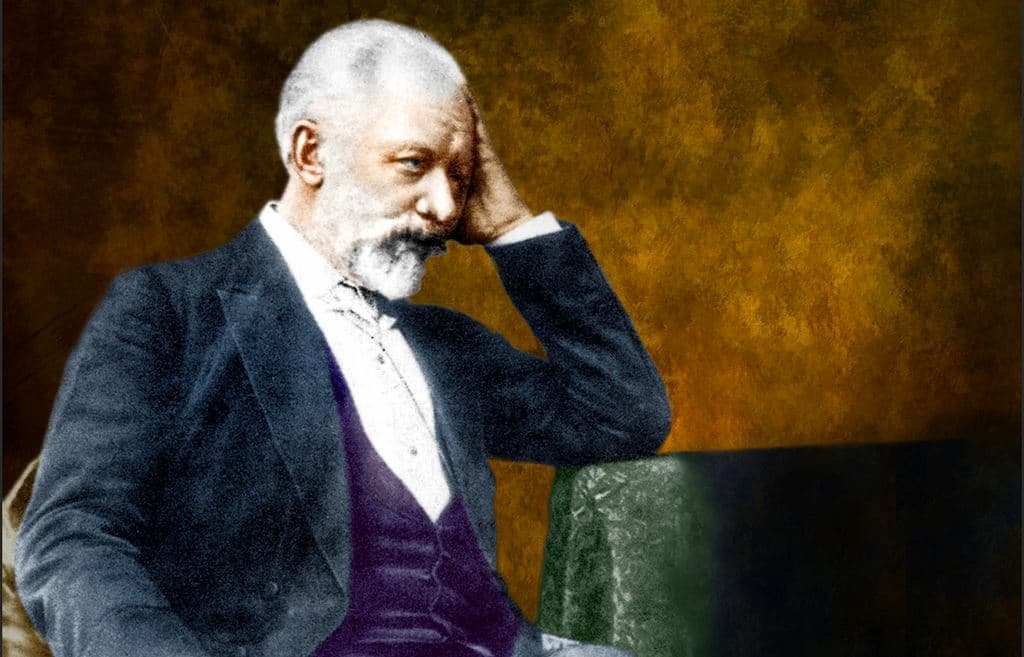
Pyotr Ilyich Tchaikovsky
Generally preferring the lyrics of lesser-known writers, poetic details mattered little to the composer. Instead, he was looking to establish a general mood projecting strong personal feelings. Tchaikovsky always enlisted the singer as the primary interpreter of the text, with the pianist providing support and continuity and “sometimes crucial expressive amplification.”
We thought it might be a nice project to sample Tchaikovsky’s romanza settings, and for ease of listening and comprehension all poems are given in translation. Whether or not Tchaikovsky achieved an intimate connection between poetry and music is still hotly debated, but he certainly gave musical expression to highly personal and confessional sentiments.
Romances Opus 6
Pyotr Ilyich Tchaikovsky: 6 Romances, Op. 6, No. 1 “Do not believe, my friend” (Alexander Loukianov, baritone; Anna Matiushina, piano)
Do not believe it, my friend, when in bitter torment
I say that I do not love you anymore!
Do not believe the deception of the sea as it ebbs away,
It will return to the land, loving once again.
I long for you once more, full of my former passion,
And again, I will yield to you, my freedom.
And once again, the loud waves rush back
From far away to their beloved shores.
(Trans. Philip Ross Bullock)
The opus 6 Romances date from 1869 when Tchaikovsky was busy staging his opera Undina. Frustrated by various delays, Tchaikovsky wrote to his brother, “Once my aversion to music passes, I’ll start writing romances in order to earn a little money.” Shortly thereafter, he reported, “Last week, I wrote six romances, which are going to be printed.” The poem by Leo Tolstoy, “Do not believe it” is dedicated to the Russian soprano and actress Aleksandra Menshikova.
Pyotr Ilyich Tchaikovsky: 6 Romances, Op. 16, No. 5 “So what can I say” (Sofya Preobrazhenskaya, mezzo-soprano; V. Preobrazhenskaya, piano)
Romances Opus 16
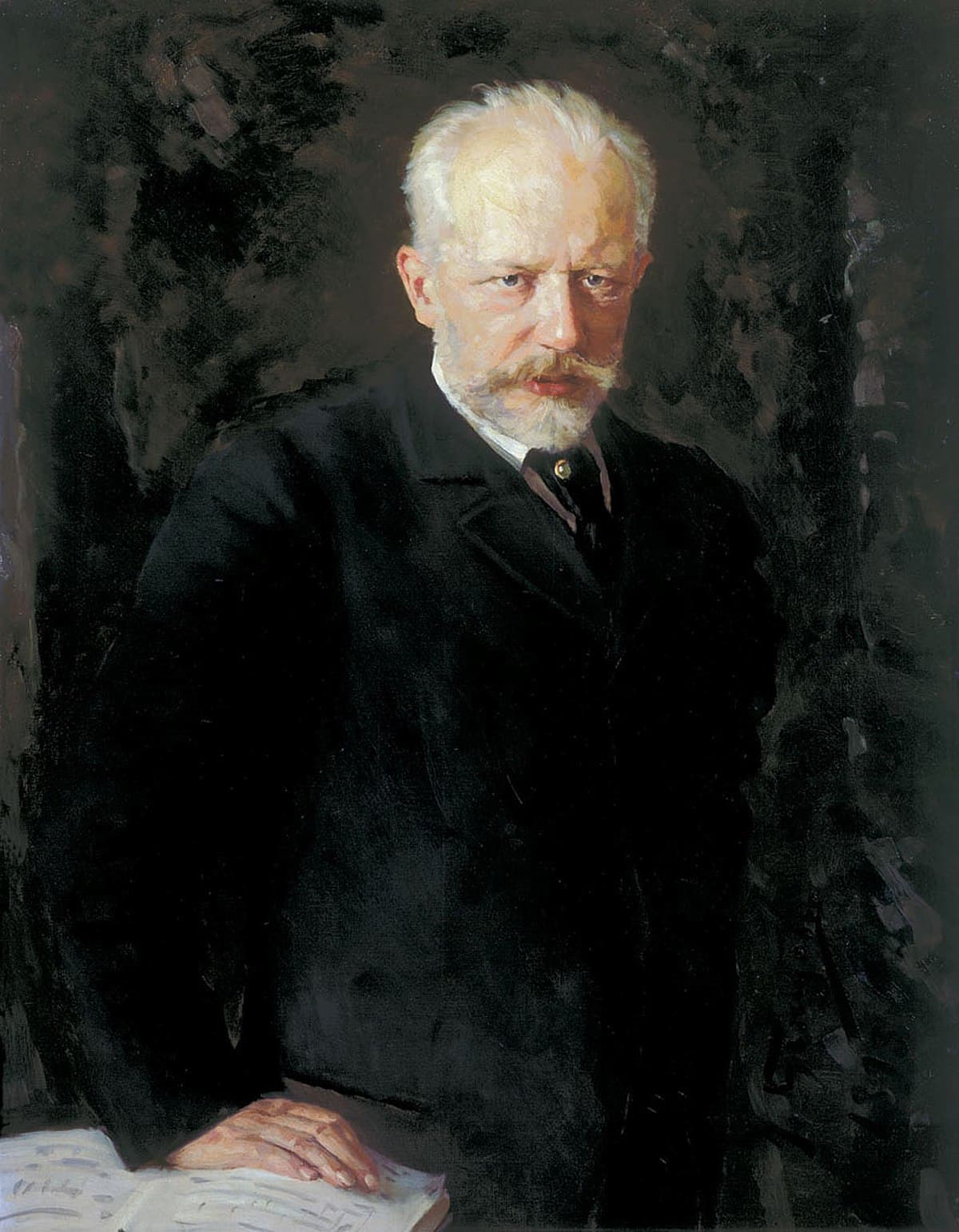
Pyotr Ilyich Tchaikovsky
Shortly after finishing his Second Symphony in November 1872, Tchaikovsky indicated that he needed a break. However, as he wrote to his brother, “Now I am forced to rest by the absence of any inspiration or inclination to compose; I did try to write some romances, but somehow, they all came out badly, and I couldn’t find words that I liked.”
“ If you aren’t particularly busy, could you send me a list of suitable verses? I’ve filled a whole ream of paper with verses, but they are all so terrible that not one of them is suitable to set to music.” In the end, Tchaikovsky wrote his own words for the most popular song in this set, “So what can I say?”
Your angelic image is with me day and night;
My tears, dreams, and nightmares
Are full of you!
Are full of you!
So what? What? What?
Torment me, but love me!
I keep the secret of deadly passion deep inside; and
you reproach me and embarrass me!
You torment me
With heartless, brutal mockery!
With heartless, brutal mockery!
So what? What? What?
Torment me, but love me!
I will be faithful to you till death,
But every day, every hour you sting my heart with
your unfaithfulness,
And poison my life!
No, I will not survive this torment!
You have no pity in your heart!
So what? What? What?
Kill! But love me!
Pyotr Ilyich Tchaikovsky: 6 Romances, Op. 25, No. 1 “Reconciliation” (Alexander Loukianov, baritone; Anna Matiushina, piano)
Romances Opus 25
The years 1874 and 1875 were abuzz with compositional activities. Tchaikovsky was starting work on his first Piano Concerto and also the opera Vakula the Smith. However, he also found time to compose 6 Romances, which were first published by Vasily Bessel in April 1875. The composer received 150 rubles for his Op. 25, and “Reconciliation” sets a poem by Nikolay Shcherbina.
Oh sleep, my heart, sleep deeply!
Do not try to wake the past,
Do not summon what has fled far away,
Do not love what you once loved…
Let not hope and vain dreams
Trouble your sleep and rest!
You cannot bring back the past,
And the future holds no consolation…
Bliss offered you no restfulness,
So take solace on the couch of suffering,
And try not to recall in winter,
How you gathered roses in spring!
Pyotr Ilyich Tchaikovsky: 6 Romances, Op. 27
Romances Opus 27
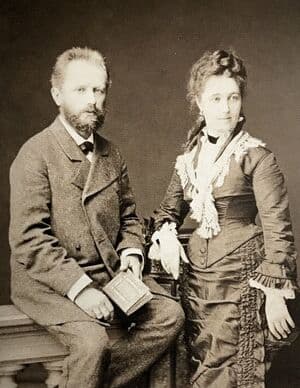
Tchaikovsky and Wife
The Six Romances, opus 27, were seemingly composed in 1875. The fourth song of the set “Evening” originates with the Ukrainian poet Taras Shevchenko, which Tchaikovsky set in Russian translation by Lev Mey. Farmers are returning to the village from the fields and are welcomed by their families at the evening meal. The children are put to bed, and only the young women and the nightingale are still heard. The idyllic picture is depicted in the music, with the humming of insects in the first stanza and the song of the nightingale.
Beside the house, the cherry’s flowering,
Above the trees the May bugs hum,
The ploughmen from the furrows come,
The girls all wander homeward, singing,
And mothers wait the meal for them.
Beside the house, a family supper,
Above, the evening star appears,
The daughter serves the dishes here;
It’s useless to advise her, mother,
The nightingale won’t let her hear.
Beside the house, the mother lulls
The little children for the night,
Then she, too, settles at their side.
And all is still… Only the girls
And nightingales disturb the quiet.
Pyotr Ilyich Tchaikovsky: 6 Romances, Op. 28, No. 6 “The Fearful Minute” (arr. P. Breiner) (Takako Nishizaki, violin; Queensland Orchestra; Peter Breiner, cond.)
Romances Opus 28
Completed in April 1875, the Six Romances Op. 28 were published by Pyotr Jurgenson just a month later. The composer considered “The Fearful Minute” one of his most popular romances. For one, he actually wrote his own poetry, and secondly, he approved two arrangements. Sergey Taneyev published his arrangement in 1982, and the same romance was arranged by Sergey Morozov for violin with cello and piano. The featured arrangement for violin and orchestra is by P. Breiner, and Tchaikovsky would presumable not object.
You listen, head bowed,
With lowered eyes and a gentle sigh!
You don’t know how fearful
These moments are for me,
How meaningful,
And how your silence
Worries me.
I’m waiting for the verdict,
For your sentence:
Whether you will
stab me in the heart
Or welcome me to paradise.
Don’t leave me in torment,
Speak just a word!
Why are you so hesitant,
And so distressed?
When you sigh, quiver and weep,
Can’t you speak a word of love,
Or don’t you love me?
I’m waiting for the verdict,
For your sentence:
Whether you will stab me in the heart
Or welcome me to paradise.
Oh, answer my entreaty,
Answer me quickly!
I’m waiting for your sentence.
Pyotr Ilyich Tchaikovsky: 6 Romances, Op. 28, No. 6 “Amidst the din of the ball”
Romances Opus 38
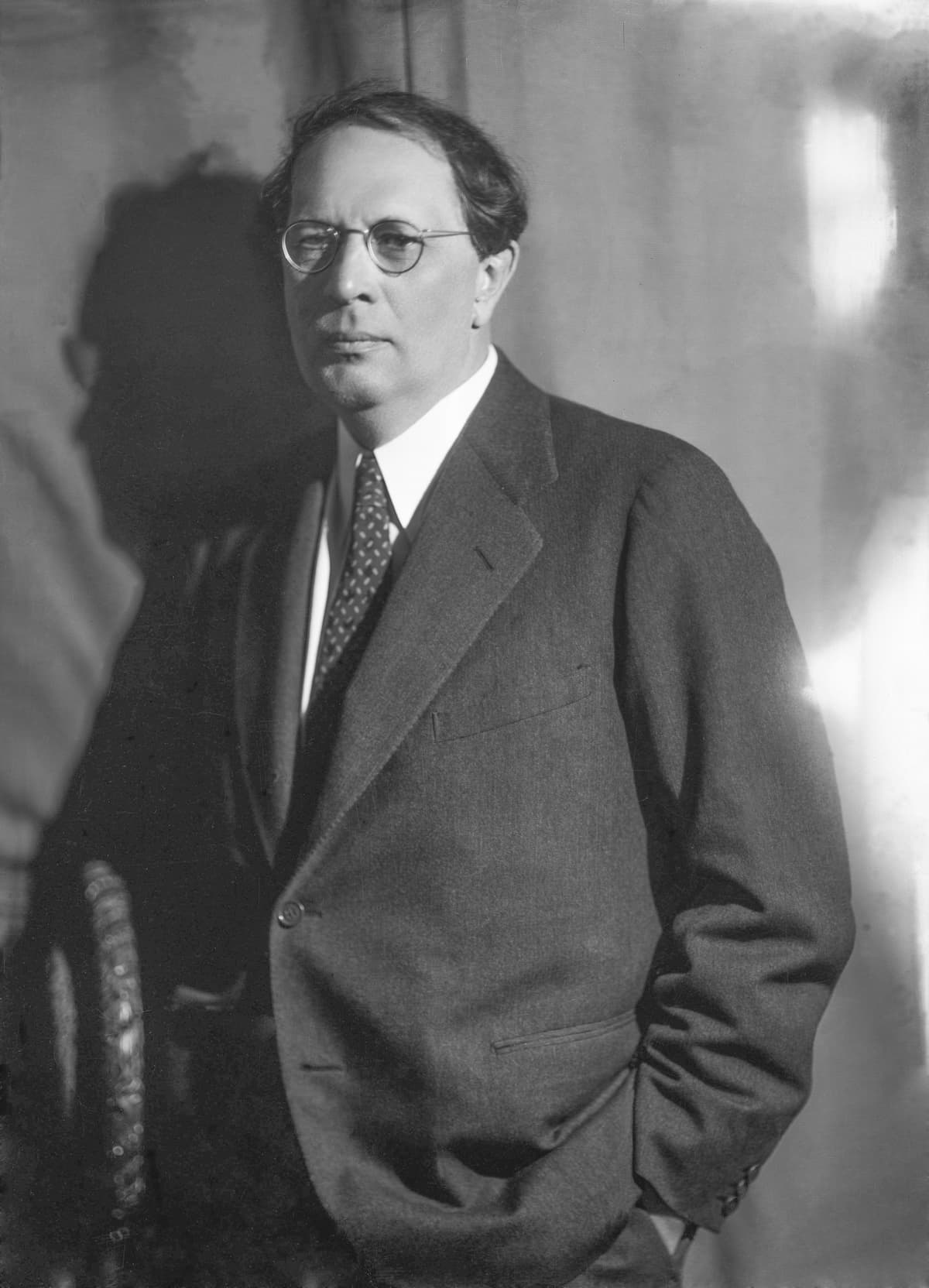
Aleksey Tolstoy
Tchaikovsky composed his Six Romances, Op. 38, shortly after the breakup of his brief and disastrous marriage. A sense of freedom and easiness permeates the entire set, and “Amid the Din of the Ball,” the setting of a poem by Aleksey Tolstoy, is decidedly joyous as it describes love at first sight across a crowded ballroom.
Amidst the din of the ball, by chance,
In the commotion of worldly vanity,
I glimpsed you, but mystery
Covered your features.
Only your eyes looked sad,
But the divine sound of your voice
Was like the of far-off pipes,
Or the dancing waves of the sea.
I fell for your delicate form,
And all of your pensiveness,
And your laughter, both sad and sonorous,
Still rings in my heart.
In the lonely hours of night,
I love to lie down, tired;
I see your sad eyes,
I hear your joyful words.
And wistful, so wistfully falling asleep,
I drift into mysterious dreams…
I don’t know whether I love you,
But I think I probably do!
(Trans. Philip Ross Bullock)
Pyotr Ilyich Tchaikovsky: 7 Romances, Op. 47, No. 2 “Softly the Spirit Flew”
Romances Opus 47
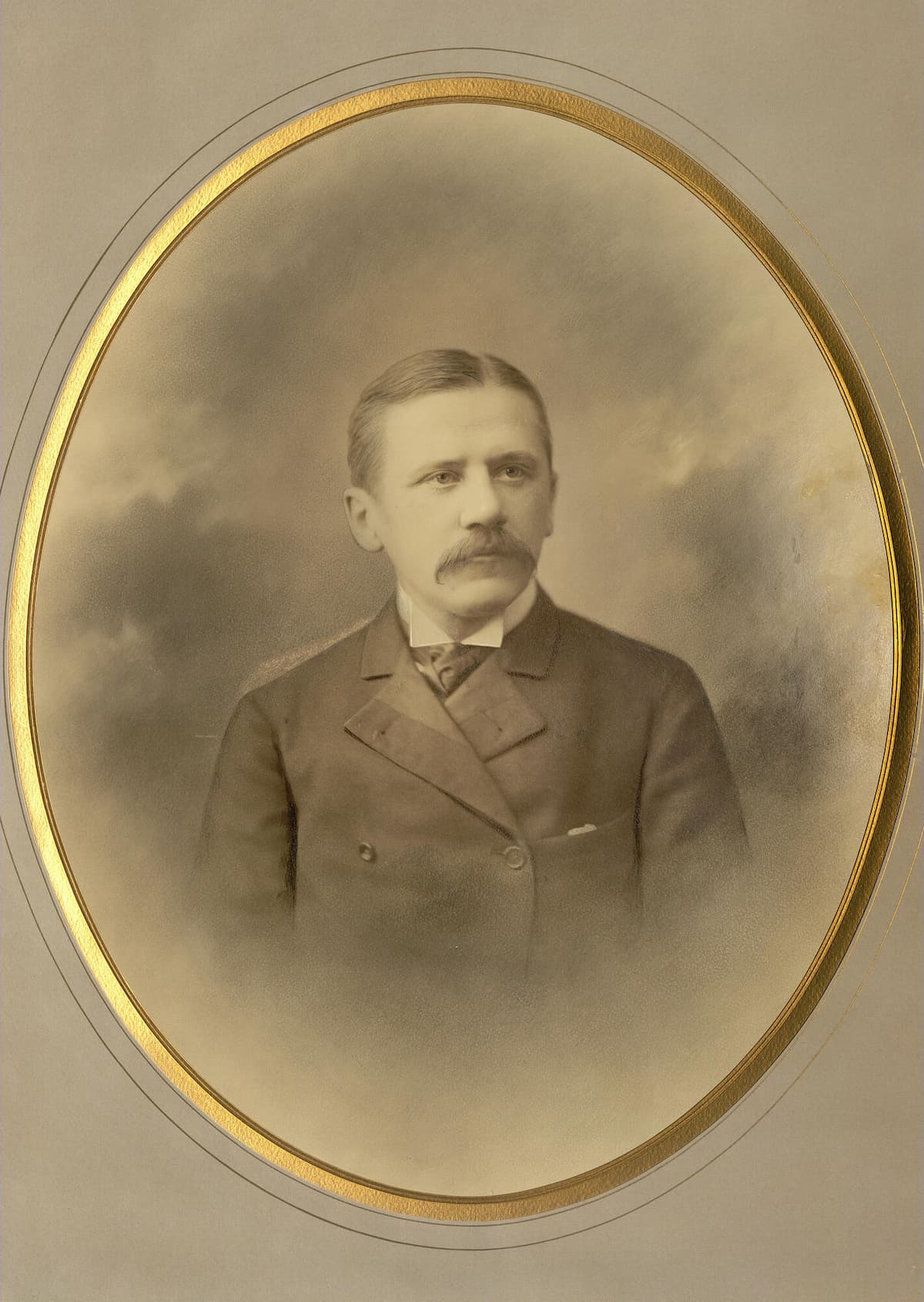
Modest Tchaikovsky
Tchaikovsky informed his brother Modest during the summer of 1880, “I have written some romances; one of them gives me immeasurable delight, but to spare my tears, I mustn’t play it.” He might well have been talking about the romance “Softly the Spirit Flew up to Heaven,” a song inspired by Jules Massenet’s Marie Magdeleine. “I was so moved by this deeply heart-felt music,” Tchaikovsky writes, “in which Massenet succeeded in capturing the infinite goodness of Jesus—that I shed whole streams of tears. All day today I had this duet in mind while writing a romance to Tolstoy’s words.”
A soul flew quietly to the heavens,
Sadly she lowered her lashes,
Shedding tears into the space from which stars fall,
Bright and long there curled behind her a trail of tears.
Out of the quietness, a light shone on her and inquired:
“Why are you so sad, with tears in your eyes?”
She responded: «I haven’t forgotten the world.
Many who I left there suffer and are sorrowful.
Here I’m just an image of bliss and feel only joy,
Righteous souls know neither sorrow, nor anger.
О, let me return once again, Creator, to the earth,
That I might bring pity and comfort to someone!”
(Trans. Laura Prichard)
Pyotr Ilyich Tchaikovsky: Six Romances, Op. 57, No. 1 “Tell me, what in the shade”
Romances Opus 57
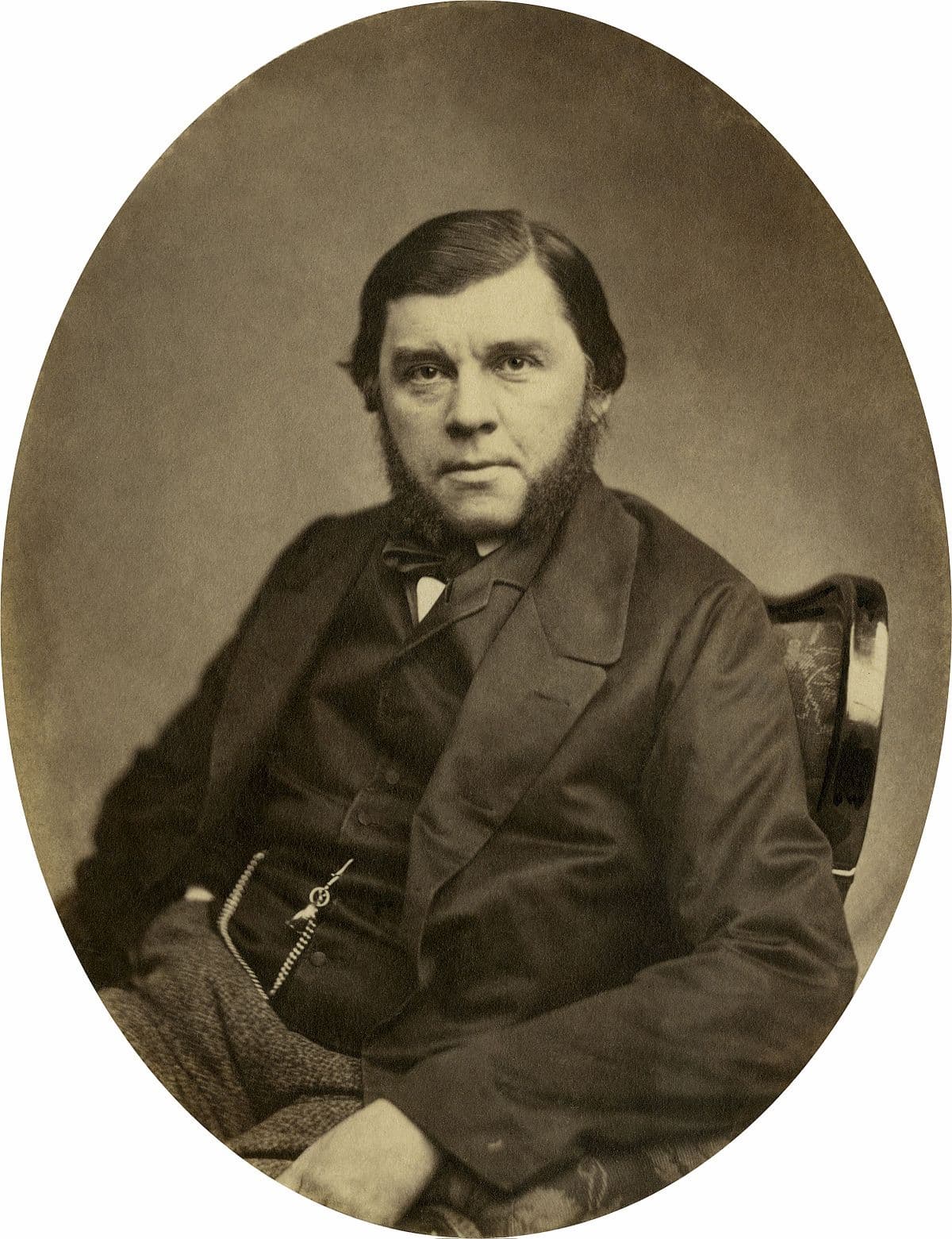
Vladimir Sollogub
Tchaikovsky composed his Six Romances Op. 57 in 1884, with the first song in the set “Tell me, what in the shade of the branches.” The poem originates in Vladimir Sollogub’s comedy-vaudeville Trouble from a Tender Heart, and Tchaikovsky creates a complex monologue developed from a memorable musical image in the first bars.
Tell me, what in the shadow of the branches,
when nature is resting,
what is the vernal nightingale singing about,
and what he is expressing with the song?
What secretly stirs the blood for all?
Tell me, tell me, tell me, which word
is familiar to all and is forever new?
Love, love, love!
Tell me, what in private
does a girl lost in thought wonder about,
what with furtive trembling in her sleep
promises her fear and joy?
Name that strange affliction
in which there is serene comfort,
what is it she needs to wait for?
Love! love!
Tell me! when you, weary of the yearning of life,
are languishing,
and in defiance of wicked sorrow,
it’s as if you are summoning the specter of happiness!
What delights your bosom?
Is it not those unearthly sounds,
when you heard for the first time
the words, the words of love!
(Trans. Lyle Neff)
Pyotr Ilyich Tchaikovsky: Twelve Romances, Op. 60, No.6 “Sleepless Nights”
Romances Opus 60
Tchaikovsky had just finished his opera The Enchantress in 1886, when he once again turned to writing romances. The inspiration was an apparent invitation from the Empress, as “she would like me to dedicate a single romance to her.” It took a good bit of effort to compose these songs as the composer wrote in his diary, “Composed romances for the empress. Began not particularly well… While waiting, I tortured myself by writing another romance.”
The poem “Sleepless Nights” originates with Aleksey Apukhtin, and it became part of Tchaikovsky’s Twelve Romances, Op. 60. Restless piano figuration supports a lyric declamation that recalls the painful memories of a love affair.
Frenzied nights, reckless nights,
Incoherent thoughts, tired glances…
Nights, illuminated by the last fire,
Autumn’s dead flowers blooming too late!
Even if the merciless hand of time
Has showed me that which was false in you,
I still fly to you full of a covetous memory,
Stuck in the past, looking for an impossible answer…
Insinuating whispers from you muffle
The sounds of day, unbearable, noisy…
In the quiet night, you drive away my dream,
frenzied nights, reckless nights!
(Trans. Laura Prichard)
Pyotr Ilyich Tchaikovsky: Six Romances, Op. 63 No. 6 “Oh Child! Beneath your Window” (Ljuba Kazarnovskaya, soprano; Ljuba Orfenova, piano)
Romances Opus 63
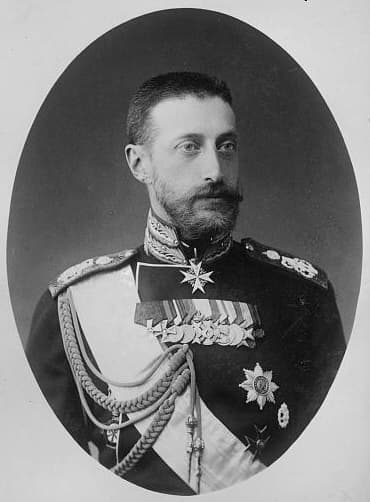
Grand Duke Konstantin Konstantinovich
Composed in 1887, the set of six romances Op. 63 rely entirely on poems by the Grand Duke Konstantin Konstantinovich. The Grand Duke has sent Tchaikovsky a copy of his verse collection and suggested, “Perhaps you feel something from them, might be suitable for setting to music?”
Tchaikovsky replied,” How opportune it would have been to have been able to use your poems! And how many of them are imbued with warm sentiments which are just right for setting to music! Reading your collection of poems, I immediately decided to use them in my next set of romances.” The gently swaying musical setting of the serenade “Oh Child! Beneath your Window” carries soft musical kisses to the singer’s beloved.
О child, below your window
I’ll sing you a serenade…
Calmed by my singing,
You’ll find peace in dreams;
Let yourself sleep, and rest
In the silent hour of night,
Be filled with the delicate sound of cherished kisses!
Many sorrows, many hardships exist
In the world below you;
Just sleep sweetly, until you have no worries
And your grieving soul won’t know
Sleep your serene sleep
In the darkness of the night,
Sleep, ignorant of earthly strife.
Let your holy guardian angel,
Dear friend, who hovers over you
And, lulling your childlike slumber,
Sing you a song of paradise.
This divine song’s
Living echo:
oh yes, may it give you hope.
Sleep well, my dear, sleep, rest
Beneath the harmonies of my serenade!
May you dream of a bright paradise,
Filled with everlasting joy;
Let yourself sleep, and rest
In the silent hour of night,
Be filled with the delicate sound of cherished kisses!
(Trans. Laura Prichard)
Pyotr Ilyich Tchaikovsky: Six Romances, Op. 73, No. 6 “Again, as before, alone”
Romances Opus 73
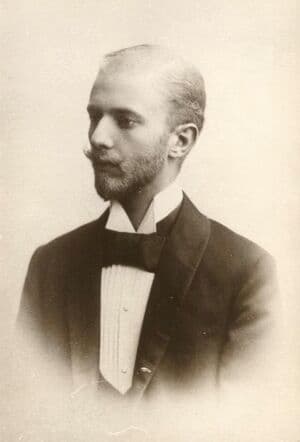
Danyl Ratgauz
Tchaikovsky’s final set of Six Romances, Op. 73 dates from the last year of his life. Setting verse by the Ukrainian poet Danyl Ratgauz, this opus contains some of Tchaikovsky’s darkest romances. Op. 73, No. 6 “Again, as before, alone” has an ostinato bass and two interacting themes that accelerate to a culmination of poignant intensity.
Again, as before, I am alone,
Melancholy once again holds me in its embrace.
Through the window I can see a poplar
Standing in the light of the moon.
Through the window I can see the poplar,
Its leaves whisper about something,
The sky is aflame, full of stars,
Why are you now, my beloved?
I cannot begin to convey
All that is happening to me.
My friend! Pray for me,
As I already pray for you!
(Trans. Philip Ross Bullock)
I hope you enjoyed this little exploration of the Tchaikovsky romances. To be sure, Tchaikovsky easily transferred the ideals of his song compositions into operatic content. Listen, for example, to the Arioso: “I am worn out by grief,” from Act 3 of The Queen of Spades, Op. 68, or the beautiful duet Romance “Knight, what is the Light,” from his last opera Iolanta, Op. 69. There are many more examples, including Lensky’s Aria from Act 2 of Eugene Onegin.
For more of the best in classical music, sign up for our E-Newsletter

